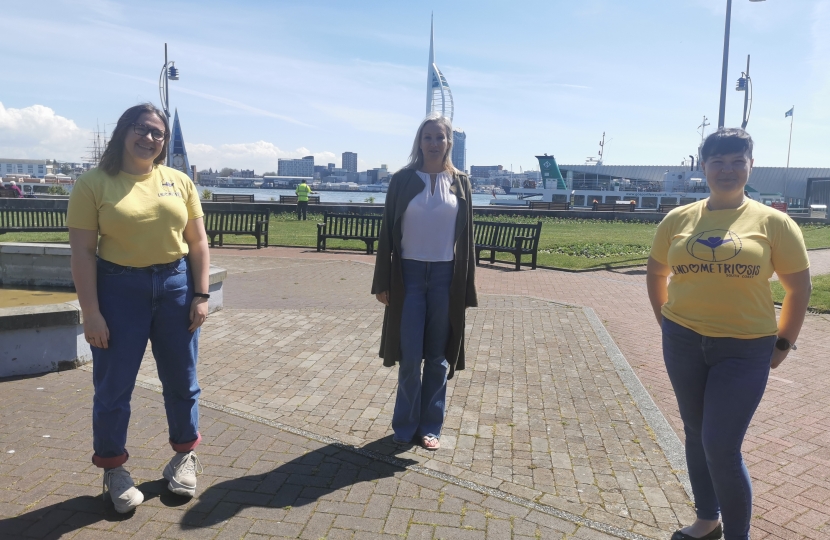
Women in the Solent region are being encouraged to share their experiences, as well as their priorities, to help shape the first ever government-led Women’s Health Strategy, designed to increase the health and wellbeing outcomes of women in England.
Gosport MP, Caroline Dinenage, was pivotal in launching the work on this Strategy as Minister for Care until February 2020. She is now urging local women, carers, clinicians and organisations to respond to the call for evidence, before it closes on Sunday 13 June, to help shape the future of women’s healthcare.
With over 65,000 responses already, there has been an incredible reaction to the call for evidence. Women of all ages and backgrounds are being asked to respond in order to capture the varying health issues women experience over their lives and the significant differences between women and men in terms of access to services, experience of services and health outcomes. Early analysis shows women from Asian and other minority ethnic backgrounds, and over-50s are under-represented in sharing their experiences - this representation is necessary to ensure the strategy works for all women.
Caroline Dinenage MP said:
“During my time as Minister of State for Care I was shocked to discover that, although female life expectancy is higher than men, women on average spend less of their life in good health. I pushed for this Women’s Health Strategy as a vital step towards a future healthcare system which works for all.
“I met with Endometriosis South Coast to hear their experiences and discuss the importance of making their views and priorities heard. I would urge all women to take part in the call for evidence.”
Minister for Women’s Health, Nadine Dorries, said:
“For generations, women have been living in a health and care system primarily designed by men, for men. This means it is often not meeting women’s needs and their health and wellbeing is noticeably suffering as a result.
“The number of responses to date has been incredible and I thank everyone who has shared their experiences – both positive and negative – as these will be central to forming the Women’s Health Strategy.
“I urge every woman to come forward and respond to the call for evidence. We want to hear about the experiences and priorities of every single woman, from all walks of life, to ensure we develop a strategy which works for everyone and reflects all of the health issues women face – not just the gynaecological ones.”
As well as health issues specific to women, the strategy will look at the different ways in which women experience health issues that affect both women and men. Women with health conditions such as diabetes, heart conditions, osteoarthritis, are also being urged to share how their condition has affected them.
The call for evidence seeks to examine experiences of the whole health and care system, including mental health, addiction services and neurological conditions as well as issues relating specifically to women such as gynaecological conditions, menopause and pregnancy and post-natal support.
The call for evidence has been designed to be user friendly, quick to fill in and easily accessible from people’s mobiles. People who live with and care for women, organisations with experience of providing services for women and those with an expertise in women’s health are also encouraged to share their views.
Respond to the call for evidence today: https://www.gov.uk/government/consultations/womens-health-strategy-call-for-evidence


